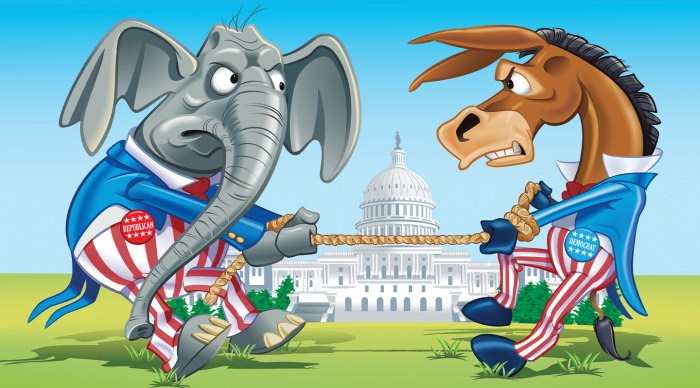Why might a citizen join a political party? This question lies at the heart of understanding political participation and the dynamics of party politics. Citizens’ motivations for joining political parties are diverse, ranging from ideological alignment to policy preferences and social identity.
This article delves into the various factors that influence citizens’ decisions to become members of political organizations.
Political ideologies, policy stances, social identity and values, political efficacy and engagement, organizational factors, and external influences all play a role in shaping party affiliation. By examining these factors, we gain a deeper understanding of the motivations that drive citizens to participate in the political process through party membership.
Why Might a Citizen Join a Political Party?

Political parties play a significant role in the political landscape, providing a platform for citizens to engage in the political process and influence policy outcomes. Understanding the reasons why citizens join political parties is crucial for comprehending political participation and party dynamics.
Political Ideologies
Citizens’ alignment with specific political ideologies can significantly influence their decision to join a political party. Political ideologies are systems of beliefs and values that guide individuals’ political views and policy preferences. Common ideologies include:
- Liberalism: Emphasizes individual rights, limited government intervention, and social equality.
- Conservatism: Prioritizes tradition, order, and limited social change.
- Socialism: Advocates for social ownership of industry, economic equality, and a strong welfare state.
- Libertarianism: Promotes individual liberty, free markets, and minimal government intervention.
Parties that align with these ideologies attract members who share similar beliefs and policy goals.
Policy Stances

Citizens’ opinions on key policy issues can also impact their choice of party affiliation. Political parties typically focus on specific policy areas, such as healthcare, education, or environmental protection. Citizens who strongly support or oppose certain policies may join parties that advocate for their preferred positions.
For example, a citizen concerned about climate change may be more likely to join a party that supports environmental regulations.
Social Identity and Values

Social identity and shared values play a crucial role in shaping political party affiliation. Citizens may identify with certain political groups based on their demographics, beliefs, or social status. Parties that effectively target specific social groups can attract members who feel a sense of belonging and shared purpose.
For instance, a party that focuses on promoting minority rights may attract members from marginalized communities.
Political Efficacy and Engagement: Why Might A Citizen Join A Political Party
Political efficacy refers to citizens’ belief in their ability to make a difference in politics. Individuals with high political efficacy may be more likely to join a political party to participate in the political process and influence decision-making.
Parties that successfully mobilize members through appeals to political efficacy can increase their membership and engagement.
Organizational Factors
The organizational structure and dynamics of political parties can also influence citizens’ decision to join. Factors such as party leadership, membership benefits, and campaign strategies can impact the attractiveness of a party.
Parties with strong leadership, clear organizational goals, and effective recruitment strategies are more likely to attract and retain members.
External Influences
External factors, such as media coverage, political events, and social movements, can also shape citizens’ decision to join a political party. Media attention, political scandals, or major social changes can influence public opinion and drive individuals towards or away from certain parties.
For example, a party that gains positive media coverage or successfully mobilizes support during a social movement may experience an increase in membership.
Question & Answer Hub
What are the primary reasons why citizens join political parties?
Citizens join political parties for various reasons, including alignment with political ideologies, support for specific policy stances, identification with social groups represented by the party, a sense of political efficacy, and the appeal of party organization and strategies.
How do political ideologies influence party affiliation?
Political ideologies provide a framework for citizens to understand the world and their place within it. Alignment with a particular ideology, such as liberalism, conservatism, or socialism, can strongly influence an individual’s decision to join a party that espouses similar beliefs.
What role does social identity play in shaping party membership?
Social identity refers to an individual’s sense of belonging to a particular group. Citizens may identify with political parties based on shared demographics, beliefs, or social status. Parties that effectively target specific social groups can increase their membership and support.